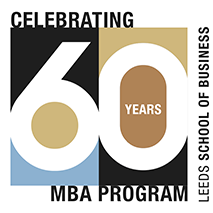Climate Change Heats Up at Business Schools

Forward-looking schools are priming students for profound challenges ahead.
As they step into today’s business landscape and tomorrow’s leadership roles, students are facing a rapidly transforming world, and climate change issues are among the top challenges on the horizon.
But many business schools are not yet addressing climate change and how business may be part of the solution.
What top schools are doing
Some schools, however, have introduced innovative content and experiences that teach future business leaders how markets and business skills can play a role in identifying solutions that lessen, adapt to, or reverse the impacts of climate change.
Columbia Business School has spent more than a decade developing the curriculum for its Climate Change and Business Program, including courses like New Development in Energy Markets and The Business of Climate Change: Investing and Managing in a Changing Environment. The program provides experiential learning and research opportunities, as well as conferences and seminars that help students develop connections between theory and practice as it relates to climate.
At Stanford Graduate School of Business, The Policy, Politics and Economics for Solving Global Warming course explores how the next generation of leaders will use a combination of forward-looking public policy, political power and technologies to address the climate challenge.
NYU Stern offers courses like Climate Science: Realities and Risks of a Changing Climate, Investing for Environmental and Social Impact, and A Financial Approach to Climate Change, which explores the science and economics of climate change, policy responses to climate change, portfolio choices, and tools to mitigate climate risks.
Leeds School of Business recently launched the Clean Energy MBA Pathway, a curated combination of courses and co-curricular experiences that equip students to lead the transition to clean energy. In partnership with the Masters of the Environment graduate program, Leeds offers courses that include Energy Science and Technology, Renewable and Sustainable Energy in Practice, and Energy Policy in the 21st Century. Recently, the school produced a video on one professor’s research about how environmental entrepreneurship can be part of the climate crisis solution.
From one-offs to all in
While business schools continue to develop courses and programs on the business of climate change, some education leaders recommend that it be woven throughout the core curriculum, from finance to operations to marketing—through class projects, readings, case competitions and guest speakers. When business graduates appreciate how climate change can affect business decisions and opportunities, they will be better prepared to act in ways that not only create economic value, but social value as well.
Sharing ideas
If you would like to share what your business school is doing to prepare students to face climate-related challenges, please email us and we’ll include some of these ideas in our next newsletter.
Email us at: leedsmarketingteam@colorado.edu.







